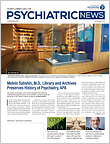My mother liked to read feminist and self-help books. Women Who Love Too Much and Feminine Mystique were some of the many titles that were in her household. Her issues as a college educated, stay-at-home mom reflected those related to the status of women of her generation who worked to address the huge disparities in employment and economic opportunities.
Today those disparities are less huge, but they continue to exist. As for me, I don’t often read books about gender-based disparities. Thanks in part to my mother’s generation of women who were vocal about disparity issues, I read business leadership books. Some are based on research from prominent business school faculty; others are pedantic and/or only anecdotal. Somewhere in my library of self-help leadership books was an exercise that proposed the notion that creating a professional epitaph can improve one’s focus as a leader: At the end, how do you want to be remembered? I am thinking about that advice as I write this final column as your president.
Epitaph. What contributions have I made to our wonderful profession and our organization that might be enduring? Instead of spreading myself too thin in what turned out to be a quickly moving year, I focused sharply on three topics that I hoped would bring about meaningful change to improve your professional and personal lives. Have my initiatives on well-being, innovation, and making APA the go-to place for numerous professional growth and development needs for our members made a difference?
Probably one of the most critical issues that we, as physicians, face right now is burnout. It has serious repercussions not only for us as individuals but also for our patients. The APA work group that I appointed to work with me on researching and addressing this issue has created a number of resources for use by members, educators, district branches, and psychiatrists working in institutional settings (see psychiatry.org/wellness). I am grateful for the opportunity to have chartered, fostered, and supported the work of the work group and hope that our efforts have touched every APA member in some way.
Embracing innovation and making it a part of the vocabulary of our field are crucial to the future of our profession. We need to increase the awareness and knowledge of our members regarding the opportunities that innovation represents in terms of not only improving psychiatric care but also playing a role in preventing burnout—that is, in harnessing its power to streamline our work and increase efficiencies. Unless we are able to engage with innovators and participate in shaping new technology, the practice of psychiatry as we know it is at risk of becoming obsolete. Fortunately, we have a growing number of APA members who are also innovators! Drs. John Santopietro and John Torous helped to organize a few of our innovators into a work group, and they have produced a set of recommendations that are very informative. The APA administration has made a commitment to address the recommendations so that this work carries forward. I welcome you to review the report; it can be obtained by sending an email to Nathan Tatro at
[email protected].
As for facilitating the notion that “APA is the go-to place for professional development and support,” I can’t claim personal credit for anything other than supporting the ideas and energy of our wonderful staff. APA staff, under the direction of our CEO and Medical Director Saul Levin, M.D., M.P.A., have really done a wonderful job this year. Our membership numbers are increasing; meeting submissions are breaking records; our fellowships are in demand, making them extremely competitive; and our new registry is exceeding enrollment milestones. In addition, more and more medical students are choosing to enter psychiatry each year. Increasingly, our APA is the go-to organization that supports a red-hot medical specialty!
Thank you to everyone who pitched in along the way to make this year work so well. I am not the first woman and not even the first APA president to also be employed simultaneously in a leadership role in the federal government. I may, however, be the first blonde community psychiatrist that APA has ever had as president. (We are fact checking that one!) It has been a great year, and I am very much looking forward to my role as a past president and offering my support to Dr. Altha Stewart as our next leader.
Thank you for the opportunity to lead our wonderful organization for this past year! I think I’ll settle for this professional epitaph: “She promoted professional well-being and innovation and strengthened the position of APA as the go-to organization for all psychiatrists (and especially community psychiatrists).” ■

